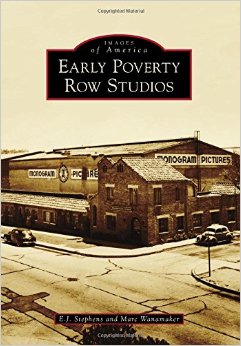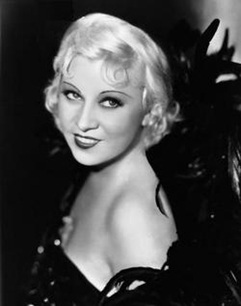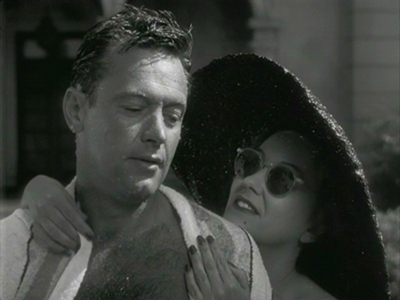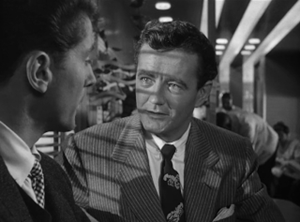“It’s not the men in my life, it’s life in my men.” The original bad girl Mae West will be honored at 7:30 p.m. Wednesday, Jan. 14., with a special program at the Hollywood Heritage Museum.
Happily ever after. Not. Noir City: The Film Noir Festival returns to the Castro Theatre in San Francisco, Jan. 16–25, with a program of 25 titles depicting the darker side of marriage. The fest will travel to several other cities, including Los Angeles, later in the year.
Catch this dog. The singular neo-noir “Dog Day Afternoon” (1975, Sidney Lumet), starring Al Pacino, screens at 7:30 p.m. Friday night at the Egyptian Theatre in Hollywood. It’s on a double bill with “The Dog,” (2013, Allison Berg, Frank Keraudren). The story behind “Dog Day Afternoon” (a man robbing a bank to pay for his lover’s sex-change operation) was true, and this doc explores the off-screen drama, providing a riveting look at New York in the 1970s and the early days of the gay liberation movement.
 Location, location, location. Though it’s a myth that the classic film noir canon consisted entirely of B-movies, the genre’s writers, directors, cinematographers and set designers often worked on minuscule budgets. Hey, it wasn’t all bad. They had more room to experiment and defy the censors that way – just look at Edgar Ulmer.
Location, location, location. Though it’s a myth that the classic film noir canon consisted entirely of B-movies, the genre’s writers, directors, cinematographers and set designers often worked on minuscule budgets. Hey, it wasn’t all bad. They had more room to experiment and defy the censors that way – just look at Edgar Ulmer.
Many of them were regular denizens of the scrappy little Hollywood studios known as Poverty Row and so we are eagerly looking forward to Marc Wanamaker and E.J. Stephens’ new book: “Early Poverty Row Studios.”
The authors will discuss the book at 4 p.m. Saturday, Jan. 17, at Larry Edmunds Bookshop in Hollywood. See you there!
UCLA honors DeMille, a Hollywood pioneer. Starting Sunday, Jan. 18, the UCLA Film & Television Archive presents the film series, “The Greatest Showman: Cecil B. DeMille,” at the Billy Wilder Theater in Westwood Village.
This retrospective of one of cinema’s greatest storytellers will showcase 10 films restored by the archive, including “The Ten Commandments” (1956), “The Plainsman” (1937) and “The Buccaneer” (1938). A legendary producer and director, DeMille (1881-1959) helped put Hollywood on the map and set a high bar in terms of both artistry and showmanship. The series ends Feb. 28.
“I’m ready for my closeup, Mr. DeMille.” Arguably, Billy Wilder’s “Sunset Blvd.” is the finest movie ever made about Hollywood. Inarguably, it’s deliciously noir. Aging Hollywood star Norma Desmond (Gloria Swanson) is admittedly a little cut off from reality. She fawns over her pet monkey, has rats in her pool, autographs pile after pile of 8 x 10 glossies for her fans, even though she hasn’t made a picture in years. But, like so many women of film noir, she was ahead of her time. Norma was a veteran movie star who wanted to create her own roles, look her best and date a younger, sexy man. Anything wrong with that?
Luscious William Holden plays Joe, Norma’s younger lover, and it’s worth watching just to lust after Holden. See it on the big screen at 7:30 p.m. Monday, Jan. 19, at the ArcLight Cinema in Sherman Oaks. Co-presented with the Skirball Cultural Center, in conjunction with its outstanding film noir exhibitions.
Read the FNB review here.
Just the ticket? Meanwhile, Ben Affleck and others from the “Gone Girl” team are remaking Alfred Hitchcock’s “Strangers on a Train.” Hmm. Hope they can do it justice. Or at least give the Robert Walker character a few flashy suits. 😉













From FNB readers